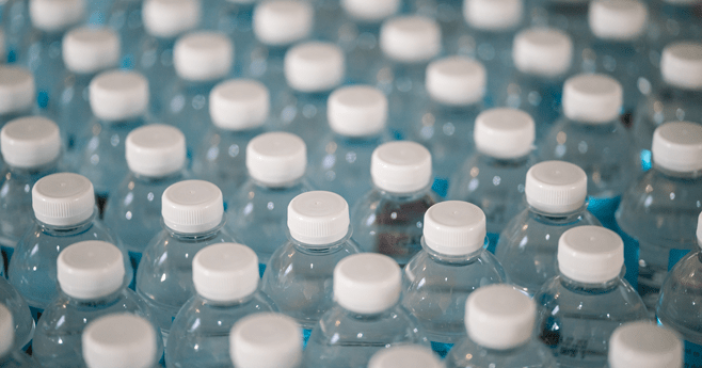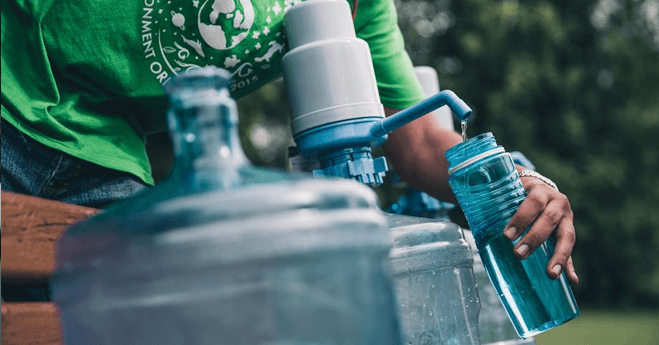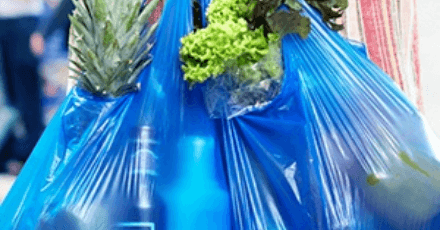In early December of 2018, the Royal Statistical Society announced their international statistic of the year: 90.5%. This number stood for the portion of plastic waste that has never been recycled, totaling roughly 6,300 million metric tons. While a part of that staggering number comes from industrial and commercial development, the vast majority is from small, everyday single-use plastic that can easily be avoided. From shopping bags to water bottles, plastic has become ingrained in our daily lives.
Several large companies have taken the initiative to reduce their plastic waste, hoping to win over consumers and reduce their environmental impact. Starbucks has pledged to eliminate plastic straws globally by 2020, while McDonald’s has said it aims to have 100% of its packaging come from renewable, recycled, or certified sustainable sources. French bottled water company Evian has taken it one step further and pledged to only produce bottles made from 100% recycled materials by 2025.
Despite the moves being made by large companies to reduce waste, a drastic decrease in plastic use, which totals 34.5 million tons a year in the US alone, will require a shift in the choices made every day by people across the globe.
To observe just how difficult this transition can be on an individual level, I decided to see if I could go zero-plastic for a week. Once I began paying attention to my plastic usage, I realized just how dependent on plastic the everyday person is. The area that was most difficult to navigate was food: grocery shopping and eating out. I quickly found some helpful alternatives to steer me in the right direction.
Plastic and the Food Industry: Everyday Challenges
One of the most difficult places to avoid plastic by far, grocery stores are filled with packaging, wrapping, and other means of containing produce or processed foods. The frozen chicken you want to make for dinner? Wrapped in plastic. The pasta that you wanted to go with that chicken? Also likely wrapped in plastic. The side salad you were hoping to put together? Those leafy greens either come pre-packaged or require the use of plastic bags to keep the rest of your groceries dry. At first, it seemed almost impossible to escape the use of plastic, but through more research—both in and out of the grocery store—I was able to find several ways to reduce, or cut out, plastic entirely.
Bring your own containers and bags
While it may seem odd to hand the butcher your own container, simply request that they deduct the weight of the container from the total. Bringing cloth bags to store vegetables helps cut back on the single-use plastic bags in the produce aisle.
Say good-bye to bottled water
This is the easiest yet most overlooked step towards reducing plastic waste. Bringing a reusable mug or water bottle to coffee shops or while out and about helps drastically reduce single-use plastic water bottles and cups.
Give up frozen foods
The convenience of being able to throw something in the microwave and have it ready in four minutes is an incredible luxury. Yet frozen foods are almost guaranteed to be wrapped in plastic. A good alternative is buying fresh foods, preparing a meal, and freezing these portions in a freezer-safe glass container at home.
BYO doggie bags
Similarly, bringing your own containers when eating out ensures any leftovers you take home are not put into single-use plastic or foam containers.
Make small, gradual changes
Other smaller things such as buying in bulk, going to farmer’s markets, and getting milk in glass bottles helped get me through the week without a huge deviation from my normal grocery shopping runs.
The rest of the week was filled with the realization that I was unable to use many items that I had never given a second thought before. From sponges to toothpaste containers and anything that comes packaged in plastic, going zero-plastic, for even a week, was incredibly difficult. In fact, the most important thing I learned from this experiment was not the list of small ways to reduce plastic waste on a daily basis. Instead, I gained more from becoming aware of the vast amount of plastic that I used without thinking.
Reducing plastic waste will not happen overnight. It will take many little steps from lots of people around the world, but when forced to consciously recognize the dependence of society on plastic, one can find ways to reduce everyday plastic usage without drastically changing habits or lifestyles.
ADEC ESG is a leading provider of sustainability solutions, including fully-integrated industry expertise, software solutions, and data management. Want to stay on top of the latest on global sustainability issues? Subscribe to our monthly newsletter, Greenwatch.


 In early December of 2018, the
In early December of 2018, the 

